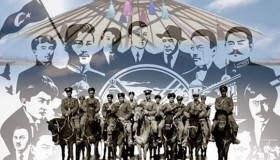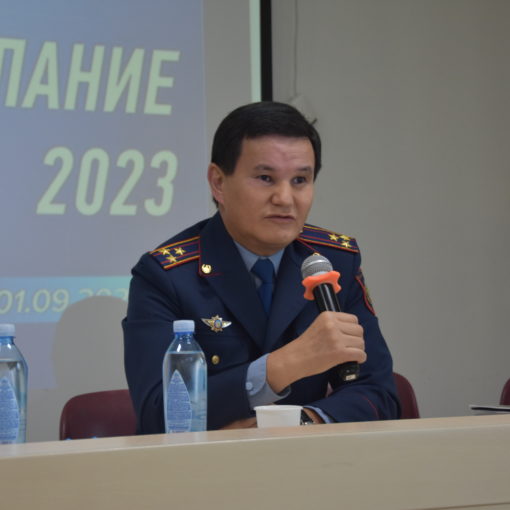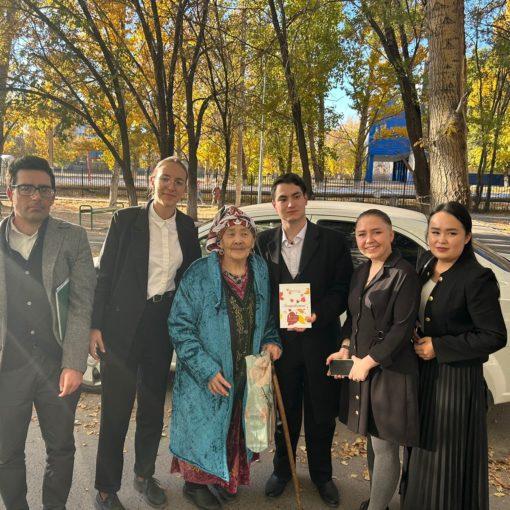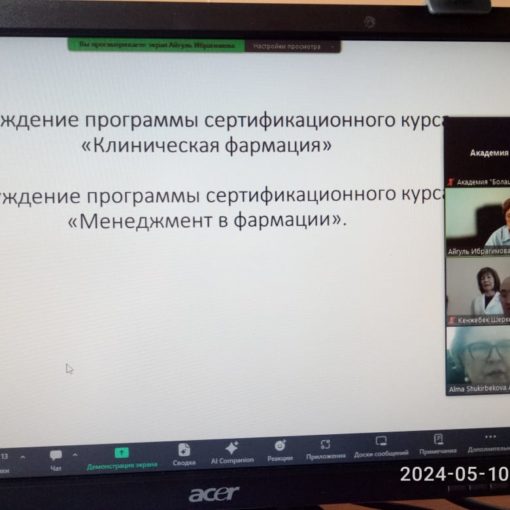The memory of the tragic pages of our history, of the victims of political repression and famine has always been, is and will be sacred for our people.
Mass political repressions of the 30-40s of the twentieth century were the greatest tragedy for millions of people. Shakarim Kudaiberdiev, Akhmet Baitursynov, Saken Seifullin, Magzhan Zhumabaev, Beimbet Mailin and many others became the victims of totalitarianism.
Nursultan Nazarbayev
In the period from 30th to 50th years of the last century prominent figures of science and culture, representatives of national intelligentsia of Kazakhstan were exposed to mass repressions. Their destinies are tragic: some of them were shot, the rest were sentenced to different terms, some of them died in the camps, the surviving part was convicted again. These are such outstanding historical figures as Ahmet Baitursynov, Alikhan Bokeykhanov, Magzhan Zhumabaev, Mirzhakyp Dulatov, Khalel Dosmukhamedov, Zhakhansha Dosmukhamedov, Ualitkhan Tanashev and many others. Destinies of the basic mass of “enemies of the people” were solved secretly, at sessions of the Military Collegium of the Supreme Court of the USSR, at special meetings of NKVD and in so-called “troikas” and “deuki”. Kazakhs were often accused of espionage in favor of Japan and Germany, which was confirmed only by their own “confessions” of the accused and convicted in the absence of other evidence in the cases. Widespread were accusations of anti-Soviet agitation and propaganda based mainly on denunciations of neighbors and fellow officers.
From 1921 till 1954 in Kazakhstan 100 thousand people were convicted, 25 thousand of them were subjected to the highest punishment – execution.
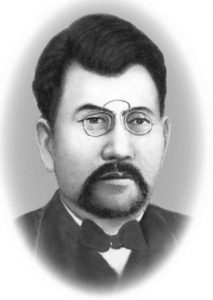
Akhmet Baitursynov
Poet, scholar, specialist in Turkic philology, translator, teacher, publicist and linguist. He was one of the authors of the “Karkaraly petition”, which demanded to stop expropriation of land from Kazakhs, to stop the flow of immigrants, and to establish people’s zemstvo. In 1903 Baitursynov together with the former deputy of State Duma of I convocation Alikhan Bukeikhanov and the writer Mirzhakip Dulatov opened the newspaper “Kazakh” in Orenburg. In 1917 he took part in creation of Kazakh party “Alash”, was one of the organizers and leaders of Alash Orda government. The graphic system created by him and named after him allowed eliminating illiteracy faster. The new alphabet which has received the name “Zhana Emle” (“New Orthography”), is still applied by the Kazakhs living in China, Afghanistan and Iran. In June 1929, during his creative trip to Kyzyl-Orda, Akhmet Baitursynov was arrested. He was accused that in 1926 in Baku, during a congress of Turkologists, he tried to establish communication with the politician Mustafa Shokai in order to realize with him a plan to separate Kazakhstan from Russia. In 1931 the scientist was sent into exile for three years in the Arkhangelsk region. In 1937 he was arrested during a new wave of repressions. On December 8, 1938, Akhmet Baitursynov was shot as an enemy of the people.
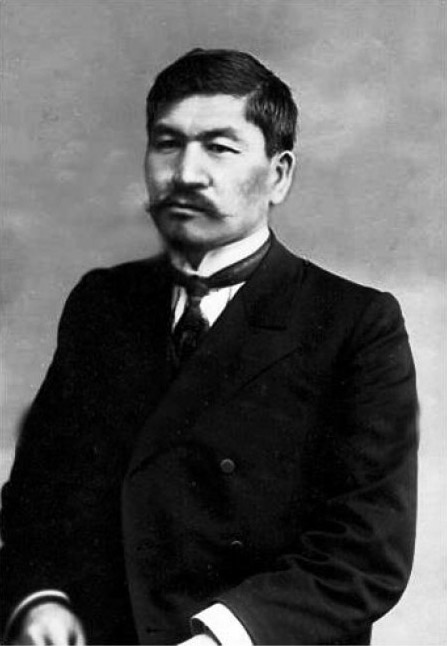
Alikhan Bukeykhan (1870-1937)
He was born in Tokyrau region of Karkaralinsk uyezd of former Semipalatinsk region, today’s Aktogay district of Karaganda region. He descended from the family of Tore, a descendant of Jochi, the eldest son of Genghis Khan; a journalist, ethnographer, politician and public figure. He was a member of the Kadet since 1905, but his ways with them have diverged after the February Revolution, as Bukeyhan ceased to find support among the Kadets in the most important for him question – providing autonomy to the Kazakh people. Bukeyhan was one of the leaders of party “Alash”, in 1917 he became the commissioner of Provisional government on Kazakhstan. In December of the same year on his initiative at the second All-Kazakh Kurultai (constituent congress) the Alash autonomy was proclaimed, which existed for two years. The Provisional People’s Council, called the Alash Orda and chaired by Alikhan Bukeykhan, became the supreme body of power. In 1919 Alash Orda revolted against the Bolsheviks; it was not successful. All this led to the abolition of the Alash Orda, and the founders of the autonomy were promised amnesty. In reality, the Soviet regime didn’t forget anything and in 1930s almost everyone who was involved in the struggle for autonomy was repressed.
Mirzhakyp Dulatov (1885-1935)

Kazakh poet, writer, one of the leaders of Alash Orda. Rapidly, like a hurricane, he burst into history with his book “Oyan, kazak!”, created in 1909.
The revolutionary spirit, desire to devote the life to the Fatherland led him to the party “Alash”, and then to the government of Alash Orda where he together with A. Baitursynov published the main printed organ of Alash Orda – the newspaper “Kazak”. The book called on people to cheer up, to look at the world, to estimate the own situation in it, to follow the way of education, to refuse nomadism, to settle down and to adopt a modern way of life. In the poem “Kazak Zherler! (The Land of the Kazakhs!), Dulatov writes with pain about the displacement of Kazakhs from fertile lands, about the large narrowing of the territory of the Kazakhs. Unfortunately, M. Dulatov’s creative heritage, political and state activities are also not really investigated. On December 29, 1928 M.Dulatov was arrested on charges of nationalism. He was sentenced to be shot, but then the sentence was revised and his punishment was replaced by 10 years of camps. There the priest Pavel Florensky helped Mirzhakip get a job as a hospital nurse. On October 5, 1935 Mirzhakip Dulatov died in the Central infirmary of the Solovetsky camp. His body rests in the free cemetery.
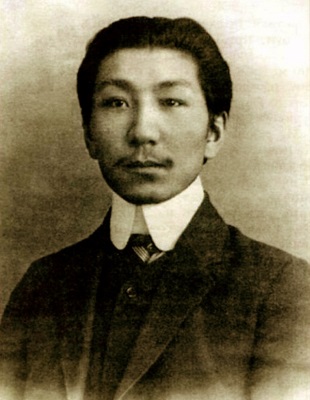
Zhakhansha Dosmukhamedov
Member of the government of the Alash Orda, Chairman of the branch on management of the western part of the Alash autonomy, cadet of the Urals Military-Royal School, representative of the Kazakh intelligentsia, one of the initiators of the political party “Alash”, Chairman of the branch on management of the western part of the Alash autonomy. Having successfully graduated from the school, he entered the law department of the Imperial Moscow University (now Lomonosov Moscow State University). The educated and energetic Kazakh was immediately spotted: he was invited to work at the Omsk Judicial Chamber, and then to the prosecutorial authorities in Russia. At the age of 27 J. Dosmuhamedov was appointed prosecutor of the Tomsk district court, and had the rank of general of justice. Zhakhansha Dosmukhamedov translated the Criminal Code of the RSFSR into Kazakh. Zhakhansha Dosmukhamedov was repressed on August 3, 1938, having previously served a five-year exile. His body rests in a mass grave in Butovo.

Alimkhan Yermekov
Alimkhan Ermekov, a graduate of the Tomsk Polytechnic Institute, built at the personal expense of Tsar Nicholas I. Alimkhan Yermekov was a major figure in the Alash Orda, worked in the government of the Kyrgyz autonomy within the RSFSR and prepared proposals for Lenin’s report in July 1920 on its borders. A. Yermekov proposed the formation of the Kyrgyz (Kazakh) autonomous republic within the Orenburg, Astrakhan oblasts, Altai Krai of today’s Russian Federation and the territory of modern Kazakhstan. He argued his proposal with the fact that since ancient times the Kazakh clans Alshyn, Kypshak and Bukeyev horde lived and lived on the territory of Astrakhan oblast; in the valleys of the Katun and Bin rivers (Kazakh names Katyn and Bi) the clans Argyn, Naiman, Kerey lived. In addition, Kazakhs live in the Kulunda steppe. In spite of this, the Astrakhan Oblast and Altai Krai were not included in the Kyrgyz Autonomous Republic, and it was formed as part of the Orenburg, Karakalpak oblasts and the territory of the modern Republic of Kazakhstan. Professor A. Yermekov later became a recognized mathematician in the USSR. He was arrested in 1937 but not executed. He died after World War II some time after his release from Stalin’s camps.

Khalel Dosmukhamedov (1883-1937)
He was a great scientist-educator, doctor, one of the first organizers of health care system, higher school and publishing business in Kazakhstan. He published more than 70 printed works, including 20 textbooks. He was a man of many talents. After the revolution he became a member of the Alash Orda government. In March 1918 Halel Dosmukhamedov and his namesake, Zhakhansha Dosmukhamedov, led a delegation to Moscow. Having secured a reception with Lenin, the delegation handed him the resolution of the Alashordin congress, which established the Alash Orda government in December 1917. In May 1918, the congress in Zhympity proclaimed the establishment of the Western Branch of the Alash Orda. One of the leaders was Khalel Dosmukhamedov. After dissolution of Alash Orda Halel took active part in cultural-educational life. In 1924 he was elected as a corresponding member of the Central Bureau of Regional Studies of Russian Academy of Sciences. While working as a pro-rector, he took an active part in foundation of Kazakh State University on the basis of Kazakh Pedagogical Institute and was appointed as the first pro-rector of the University. Working at the same time in several places, he participated in the opening of a network of national schools, in the development of scientific terminology in the Kazakh language. On September 15, 1930 he was arrested for 19 months, being investigated by the “Alash nationalist organization”. In 1938 he was arrested again and transported to Almaty. In 1939 he was sentenced to execution by military tribunal.

Zhusipbek Aymauytov
Zhusipbek Aymauytov was born in 1889 in a family of aul poor man in Bayanaulsky region of Pavlodar oblast. He learned various handicrafts from his father and the local mullah until he was fifteen. In 1907 he entered the Russian school of Bayanaul. After two years of working as a teacher in his aul and studying at the Russian-Kazakh school in Kerek, in 1914 he entered the Semipalatinsk teachers’ seminary, which he graduated in 1919. He was a writer, founder of drama and a novel in the Kazakh language, a scientist, an educator, a teacher, and a psychologist. During his study at the Semipalatinsk Teachers Seminary he met with Kanysh Satpayev and Mukhtar Auezov. In 1917-1919 he took active part in organization of Alash Orda party. Since 1922 J. Aymauytov engaged in pedagogical activity and worked as a teacher in Karkaralinsk. Thanks to Zh. Thanks to J. Aymauytov the “Miserly Knight” and “The Stone Guest” by Alexander Pushkin, “The Inspector General” by Nikolai Gogol, “Les Misérables” by Victor Hugo, “The White Silence” by John London and others were read in the Kazakh language. J. London, etc. J. Aymauytov is the author of a number of textbooks and manuals on pedagogy, psychology, art. In 1929 Zhusipbek Aymauytov was imprisoned on charges of nationalism; after a long investigation, he was sentenced to death in absentia in 1931.
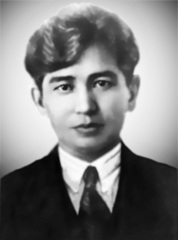
Kudaibergen Zhubanov (1899-1938)
Kudaibergen Zhubanov was a philologist, the first Kazakh professor and one of the founders of the Kazakh linguistics; he was a public figure and statesman, one of the organizers of the first Kazakh Academy – Kazakh branch of the USSR Academy of Sciences.
He graduated from the Enukidze Leningrad Institute of the Living Oriental Languages in 1928, and in 1929-1932 did his postgraduate studies at the same institute, and then at the postgraduate Institute of Language and Thought of the USSR Academy of Sciences in “Turkic languages” and “General Linguistics”.
During his short life Kudaibergen Zhubanov managed to study Persian, Arabic, Turkish, Mongolian, Georgian, Chuvash, Komi, Russian and, of course, almost all Turkic languages. As for European languages, he studied English, French, and German, and he spoke the latter quite well. In the last years of his life, he became interested in the Japanese language, into which were translated many Chinese sources, which concealed a key to science; he dreamed of learning the Chinese language. However, not all his plans were destined to come true.
On November 19, 1937, he was arrested by the NKVD, declared an enemy of the people, and was shot on February 25, 1938 by decision of the “Field troika”.
On October 3, 1957 he was posthumously rehabilitated for the lack of crime.
Nazir Torekulov (1892-1937).
Outstanding political and public figure, linguist and diplomat, the first Ambassador of the Soviet Union in Saudi Arabia.
He graduated from the Kokand Commercial School, in 1914-1916 he studied at the Economics Department of the Moscow Commercial Institute.
In 1922-1926 N.Torekulov worked in Moscow, headed the Central Publishing House of the peoples of the USSR, was engaged in scientific and pedagogical work. He gave lectures at the Communist University of the working people of the East. In 1928, when he was only 36 years old, he was appointed Soviet representative to the Kingdom of Saudi Arabia. In the diplomatic practice of those years, it was rare for such a responsible position to be assigned at such an age.
In 1937 he was repressed and shot.
On January 28, 1958, he was rehabilitated.

Temirbek Zhurgenov (1898-1939)
State and public figure.
He graduated from Russian-Kazakh elementary school and Russian-Kazakh school in Perovsk. In 1917 he entered the Land Surveyor School in Ufa, but the Civil War interrupted his studies.
From 1920 to 1921, he served as Deputy Chairman of the Irgiz District Executive Committee. After graduating from the department of journalism in Orenburg, he was sent to the Central Asian State University in 1927. In those years there was a shortage of specialists and organizers of national economy, that is why students of higher educational institutions and technical schools were often involved in practical work. In 1924-1926 the student T. Zhurgenov was charged with the duty of the authorized representative of the KASSR in the Republic of Turkestan. He actively participated in the preparation of the national-state division of Central Asia and Kazakhstan. In his last year of the university T. Zhurgenov was appointed the rector of the Tashkent Kazakh Pedagogical Institute (1926-1929). He was elected to the Central Executive Committee of Kazakhstan and Turkestan. T. Zhurgenov after graduation from the university was left as a researcher on state law. But in 1929 he was appointed Commissar of Finance of the Tajik SSR, and in 1930-1933 he was appointed Commissar of Education of the Uzbek SSR.
In 1933 T. Zhurgenov was appointed Commissar of Education of the Kazakh ASSR.
On August 3, 1937, he was sentenced to death by shooting on false charges.
He was rehabilitated on April 18, 1957.
Source: https://pricom.kz/obshhestvo/repressii-protiv-natsionalnoy-intel.html

